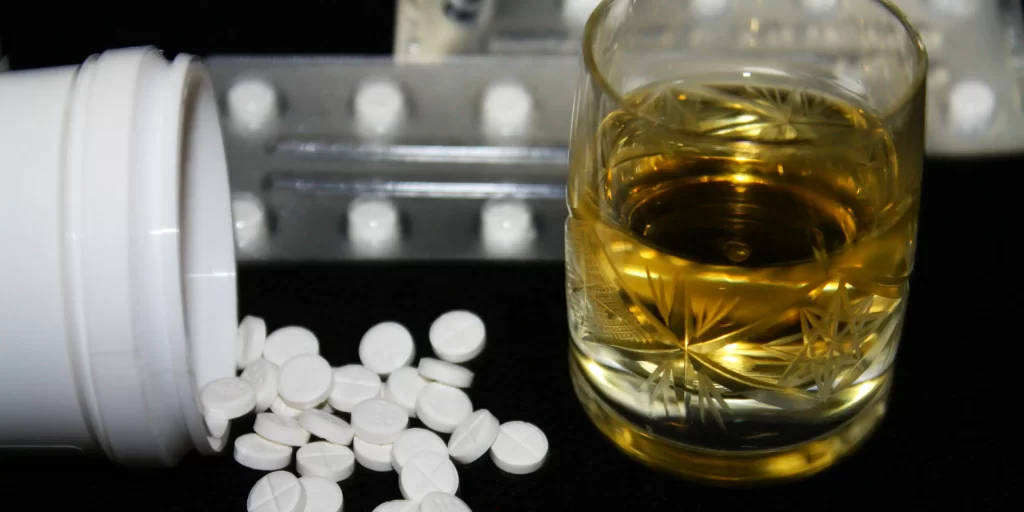
Many individuals have been prescribed benzodiazepines or “benzos” for short. Benzos are commonly prescribed to treat anxiety and panic disorders. These drugs work through raising the levels of GABA, an inhibitory neurotransmitter in the brain, resulting in a calming or sedative effect. At first, a person prescribed benzos may not think twice about combining benzos and alcohol. However, it’s important to be aware of the repercussions and the contraindications associated with mixing drugs of the benzodiazepine class with alcohol.
Both benzos and alcohol are central nervous system (CNS) depressants, meaning they decrease the activity and function of the CNS. Depending on the quantity of alcohol and benzos ingested, there can be severe and even fatal consequences.
Using Benzos in the Treatment of Alcoholism
Some medical professionals recommend using benzos in order to treat alcohol withdrawal. However, prescribing benzos for alcohol withdrawal is highly controversial as people may also develop an addiction to benzos if they misuse their prescription or use these drugs recreationally. It is possible for some people to replace alcohol use with an addiction to benzodiazepines.
Unfortunately, there are very few studies that link alcohol abuse and benzo use. Currently, there is inconclusive evidence suggesting that people addicted to alcohol would likely also misuse benzodiazepines. In conjunction with a medical professional, individuals struggling with alcohol abuse should discuss the pros and cons of using benzos during withdrawal periods.

It's time to get your life back.
If you are struggling with addiction and co-occurring mental health, our expert team is here to guide you every step of the way. Don’t wait— reach out today to take the first step toward taking control of your life.
How Benzos and Alcohol Interact
What happens when mixing alcohol and benzos? It depends on the individual. The quantity of alcohol and benzodiazepines must be taken into account, as well as a person’s tolerance to each drug. As alcohol and benzodiazepines are both depressants, using both drugs at the same time may have an additive or magnified effect. Alcohol can regulate the GABA neurotransmitter signaling pathway and further activate it.
Side Effects of Mixing Benzos and Alcohol
What are the typical side effects of mixing benzodiazepines and alcohol? The side effects of mixing these two drugs depend on how much of each was ingested. The side effects are generally more intense than taking benzos or alcohol alone. Typical side effects include:
- Slowed breathing (to a dangerous level if enough is ingested or the person has a high tolerance to alcohol)
- Slow or decreased movements
- Balance problems
- Memory recall issues
- Increased aggression or hostility
Risks of Mixing Benzos and Alcohol
There are many risks associated with mixing benzos and alcohol. When combined, especially with high quantities of one or both of these drugs, the side effects can be magnified to a deadly degree. Individuals have virtually no control of the synergistic effects of benzos and alcohol. Some side effects may be less extreme, like losing your balance, while serious side effects involve losing consciousness or overdosing. In some cases, mixing alcohol and benzodiazepines can lead to death.
Benzodiazepine and alcohol abuse can negatively impact how well a person’s central nervous system and immune system function. With enough misuse of these drugs, the vital organs like the liver and kidneys can be damaged.
In some instances, people develop a cross-tolerance to alcohol and benzodiazepines. For example, the more often these two drugs are used together, the more likely it is that individuals will develop an addiction to both. Over time, the amount necessary to feel euphoric, relaxed or high will increase, also increasing the likelihood of an overdose.
Can You Overdose on Benzos and Alcohol?
Yes, it is possible to overdose on benzos and alcohol. Benzos and alcohol can be used together to purposefully impair a person’s cognition or memory (e.g., in date-rape or other victim scenarios). Alternatively, individuals may not realize how much alcohol they have consumed due to the sedative effect of benzos. In other situations, a person may have consumed a large amount of alcohol and be unable to remember if they took their benzodiazepine medication or if they took the proper amount. These types of scenarios can be extremely dangerous, particularly when memory loss interferes with the proper use of benzodiazepines.
Getting Help for Benzos and Alcohol Addiction
There are many different avenues for receiving benzodiazepine addiction treatment or help for alcohol addiction. There are support groups, inpatient and outpatient rehabilitation facilities, drug addiction helplines, and many other opportunities to receive treatment for one or both of these addictions.
Contact The Recovery Village Ridgefield today if you or a loved one are struggling with benzodiazepine or alcohol addiction. A representative will be happy to discuss treatment options and help you learn more about care for co-occurring addictions and mental health conditions.



